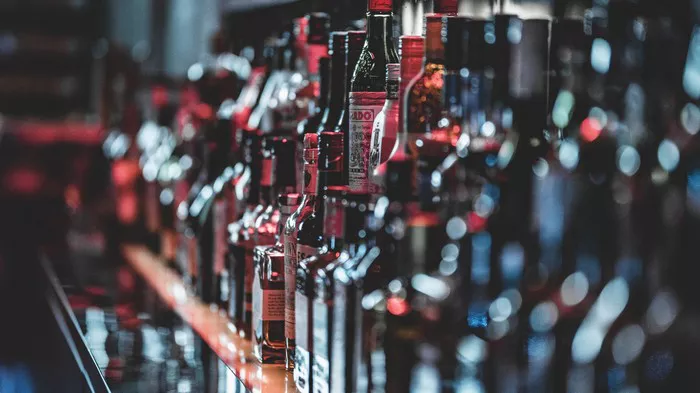Cognac Brandy, often simply referred to as “Cognac,” is a distinguished and internationally renowned variety of brandy. Produced in the Cognac region of southwestern France, Cognac has earned its reputation as a symbol of luxury and refinement. In this article, we will delve into the essence of Cognac Brandy, exploring its heritage, production processes, and what makes it a cherished spirit worldwide.
1.The Origins of Cognac Brandy
Cognac Brandy boasts a rich history and a prestigious heritage.
Geographical Indication: Cognac can only be produced in the Cognac region, which includes parts of the Charente and Charente-Maritime departments in France. This geographical indication underscores its authenticity.
Historical Roots: The origins of Cognac date back to the 16th century when Dutch merchants began distilling wine to preserve it for the long sea journey home. Over time, this practice evolved into the creation of Cognac.
2.The Production Process
The creation of Cognac Brandy involves a meticulous and regulated production process.
Grapes: Cognac is made primarily from specific grape varieties, including Ugni Blanc, Folle Blanche, and Colombard. These grapes are grown in the region’s vineyards.
Fermentation: The grapes are fermented to produce a low-alcohol wine, which serves as the base for Cognac.
Double Distillation: Cognac undergoes double distillation in traditional copper pot stills, known as “Charentais” stills. This process concentrates the alcohol and flavors.
Aging in Oak Barrels: After distillation, Cognac is aged in oak barrels for a minimum period specified by law. The aging process allows the spirit to develop its complexity and character.
3. Classification and Aging Categories
Cognac Brandy is categorized based on its age and quality.
VS (Very Special): Cognac aged for a minimum of two years.
VSOP (Very Superior Old Pale): Cognac aged for a minimum of four years.
XO (Extra Old): Cognac aged for a minimum of ten years. This category often includes premium and highly sought-after Cognacs.
4. Signature Characteristics
Cognac Brandy is celebrated for its distinctive taste and sensory qualities.
Flavor Profile: Cognac offers a wide range of flavors, including notes of fruit, oak, vanilla, spices, and floral undertones. The aging process and grape variety influence its unique taste.
Aromas: Cognac is known for its complex aromas, which can include hints of dried fruits, nuts, and subtle floral notes.
5. Enjoyment and Pairing
Cognac Brandy is a versatile spirit that can be savored in various ways.
Sipping: Cognac is often enjoyed neat or with a splash of water to savor its complex flavors and aromas.
Cocktails: It is a key ingredient in classic cocktails like the Sidecar and Brandy Alexander.
Conclusion:
Cognac Brandy, with its storied history and distinctive production methods, offers a sensory journey like no other. The Cognac region’s terroir, coupled with the artistry of skilled distillers, results in a spirit that has become synonymous with sophistication and luxury. Whether you prefer to sip it slowly and savor its complexity or mix it into a classic cocktail, Cognac Brandy remains a timeless and cherished spirit that continues to captivate the hearts of connoisseurs and enthusiasts worldwide.
FAQs about Cognac Brandy :
1. What makes Cognac different from other types of brandy?
Cognac is unique because it must be produced in the Cognac region of France, adhering to strict regulations. It is made primarily from specific grape varieties and undergoes double distillation in copper pot stills, giving it its distinctive characteristics.
2. What types of grapes are used in the production of Cognac Brandy?
The primary grape varieties used in Cognac production include Ugni Blanc, Folle Blanche, and Colombard. These grapes are well-suited for distillation and contribute to the spirit’s character.
3. How long is Cognac typically aged in oak barrels?
The aging period for Cognac can vary, but it must meet minimum age requirements for classification. VS (Very Special) Cognac is aged for a minimum of two years, VSOP (Very Superior Old Pale) for a minimum of four years, and XO (Extra Old) for a minimum of ten years.
4. What is the significance of the “Charentais” stills in Cognac production?
Charentais stills, also known as copper pot stills, play a vital role in Cognac production. They are used for double distillation, which concentrates the alcohol and flavors in the spirit. This traditional method is essential for the creation of Cognac’s distinctive character.
5. Can Cognac Brandy be used in cooking or as an ingredient in recipes?
Yes, Cognac is often used in cooking to enhance the flavors of various dishes, especially in sauces, soups, and desserts. It can also be used as a flambé ingredient in certain recipes.
6. Are there specific glasses or glassware recommended for enjoying Cognac?
Cognac is typically enjoyed in special tulip-shaped glasses called “Cognac glasses” or “snifters.” These glasses allow you to savor the aromas and flavors of the spirit.
7. What is the ideal serving temperature for Cognac Brandy?
Cognac is best served at slightly warmer temperatures than many other spirits, typically between 60°F and 70°F (15°C to 21°C). This range allows the complex aromas and flavors to be fully appreciated.
8. Are there specific food pairings that go well with Cognac Brandy?
Cognac pairs well with a variety of foods, including cheeses, chocolates, nuts, and dried fruits. It is also a classic choice to accompany a cigar.
9. Can Cognac Brandy be mixed into cocktails, or is it primarily a sipping spirit?
Cognac is a versatile spirit that can be enjoyed in both ways. While it is often savored neat or with a splash of water to appreciate its complexity, it is also used as a key ingredient in classic cocktails like the Sidecar and Brandy Alexander.
10. Are there different quality levels or grades of Cognac besides VS, VSOP, and XO?
While VS, VSOP, and XO are the most common quality classifications, there are other designations, such as Hors d’Âge and vintage Cognac, which indicate exceptional quality or specific production years.


